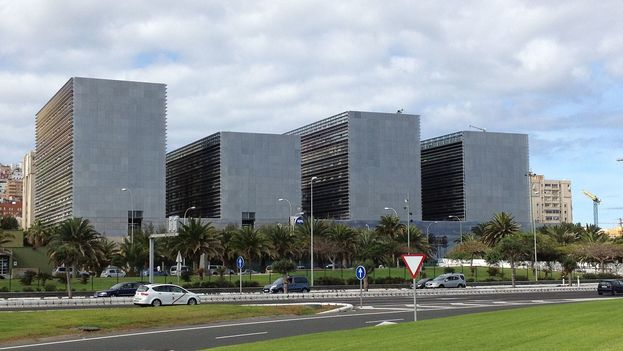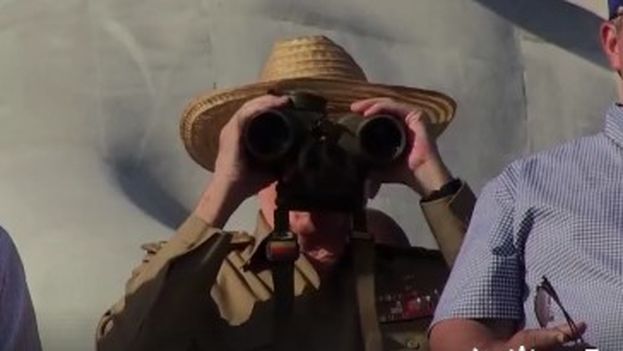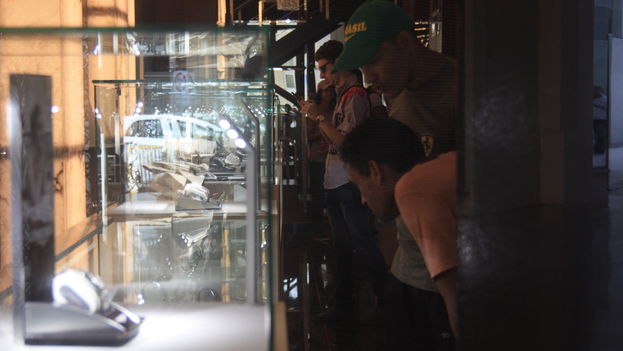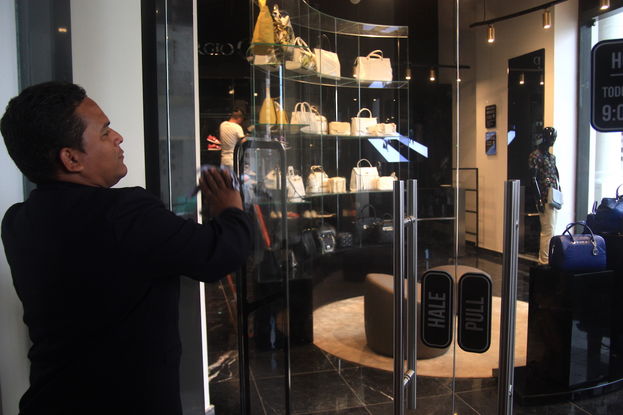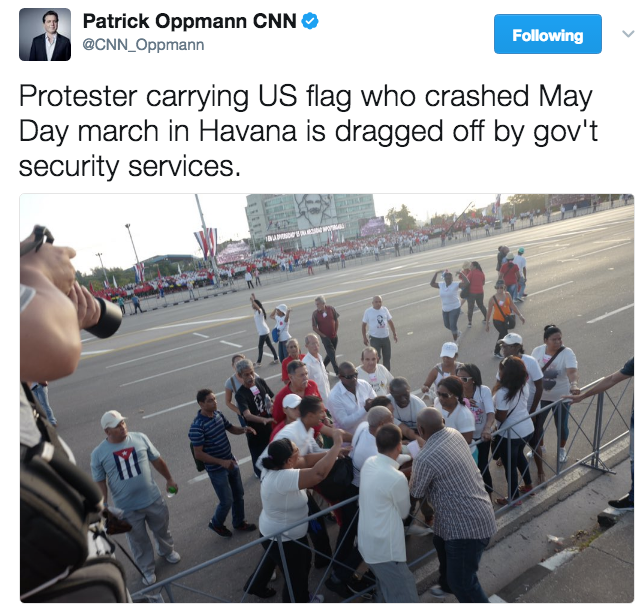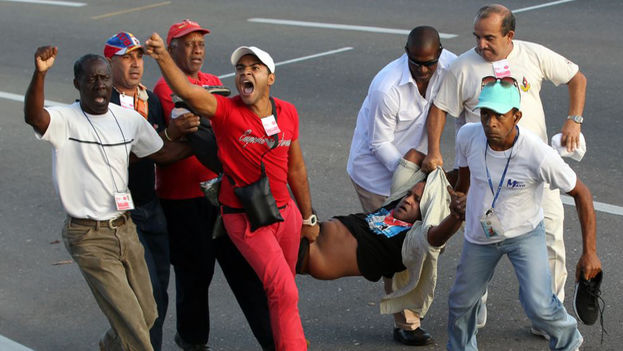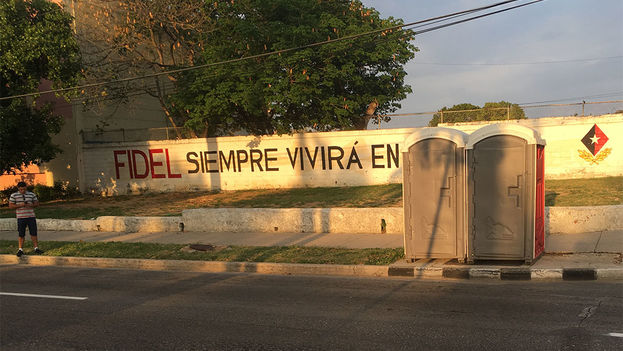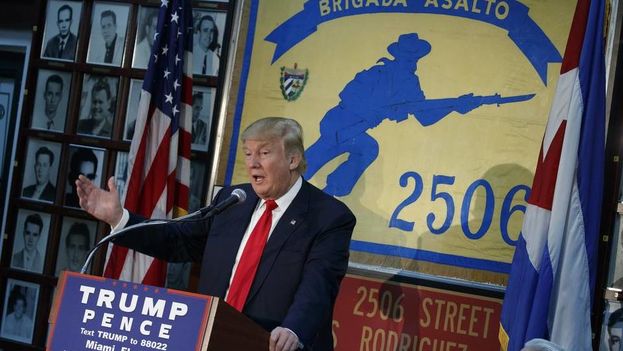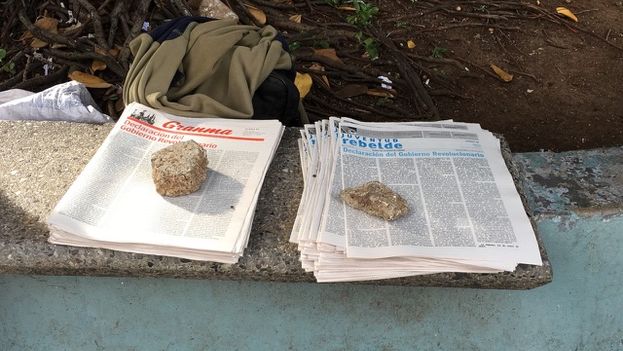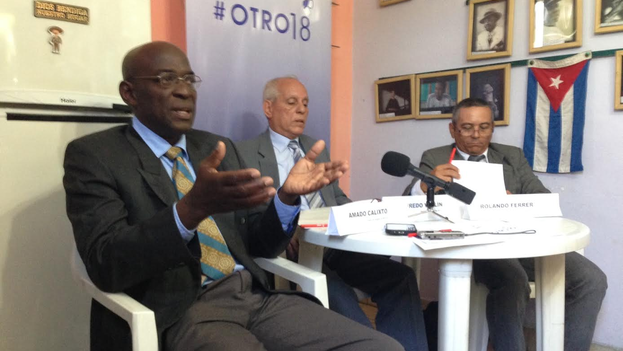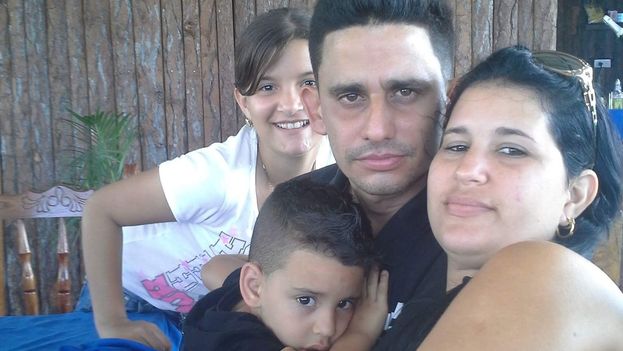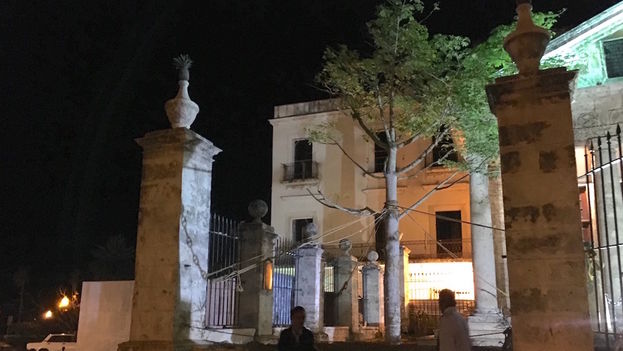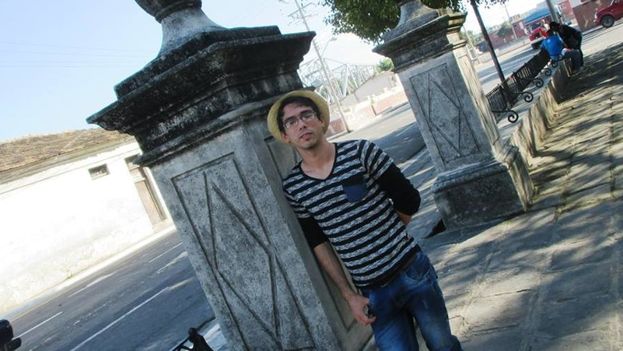Trump has held contradictory positions toward Cuba as he does on many other issues. In the past, he showed warm support for the reestablishment of diplomatic relations between the two countries. He criticized the United State trade embargo on Cuba, and during the election campaign it became known that years earlier the tycoon had tried to get around the prohibitions on doing business on the island. continue reading
Shortly before the election, Trump promised to reverse the thaw and strongly criticized the “concessions” offered by Barack Obama to Raúl Castro’s government. At a campaign event in Miami he threatened to reverse the process of rapprochement unless Havana “meets our demands.”
“Our administration will do all it can to ensure that the Cuban people can finally begin their journey toward prosperity and liberty,” Trump wrote after the death of former President Fidel Castro on November 25. But as the weeks passed, the new administration has made clear that the Island is not among the priorities on its agenda.
Shortly before the election Trump promised to reverse the thaw and strongly criticized the “concessions” offered by Barack Obama to Raúl Castro’s government
Those who expected the tycoon to harden his tone against Raúl Castro’s government have not yet heard a single word of condemnation. Cubans are also impatiently awaiting the reinstatement of the wet foot/dry foot policy that Obama repealed in the last days of his term.
On the street, the economic situation is strained by cuts in fuel sales, shortages of food and the lack of a timetable to end the dual currency system. Entrepreneurs also have mixed feelings about the new tenant in the White House.
Miguel Arencibia is self-employed in a business dedicated to the sale of CDs and DVDs with music and films that he operates in Tulipán Street in Havana. He does not believe that “someone who has more than four billion dollars is crazy,” referring to Trump, although he is surprised that he has not made any references to the Island. “Sometimes we believe, or someone made us believe, that we are the navel of the world,” he acknowledges.
In these hundred days, the Plaza of the Revolution has opted for caution. The official press maintains a mostly muted criticism of Trump and during the Fifth Summit of the Community of Latin American and Caribbean States (CELAC), Raúl Castro assured that “the United States and Cuba can live in harmony and respect, but Cuba will not make concessions inherent to its sovereignty and independence.”
Over the opening weeks of the Trump administration, the national media’s cartoonists have barely drawn the features of the American president, a practice widely used to make fun of previous administrations, especially Republican ones, such as those of George W. Bush and Ronald Reagan.
In these hundred days, the Plaza of the Revolution has opted for caution. The official press maintains a mostly muted criticism of Trump
The relaxation of trade and travel regulations, led by Barack Obama, remains in force. This week, the inauguration of the Google Global Caché service was announced, which will allow certain Google content, such as YouTube and Gmail, to be hosted on local servers on the Island.
Companies like Airbnb have increased their presence among home-based entrepreneurs, while US airlines such as Delta, American Airlines and Southwest have asked the US State Department for approval to increase the frequency of their flights to Cuba.
However, the widespread opinion is that the thaw has come to a standstill and Trump’s silence increases doubts about the future of diplomatic rapprochement. Not even the boldest analysts dare to predict the future of relations between the two nations, given the unpredictability that has characterized the tycoon in other areas.
Sebastián Arcos, of Florida International University, sees “nothing new” in policies toward Cuba but says that “barely 100 days have passed and we must remember that Obama got involved in Cuba in the last two years of his presidency.”
Not even the boldest analysts dare to predict the future of relations between the two nations, given the unpredictability that has characterized the tycoon in other areas
According to Arcos, it is “clear that Senator Marco Rubio carries a lot of weight in relation to Cuba and Venezuela” when it comes to advising Trump. “We do not know what the senator is recommending, although we do know that Rubio has a tougher stance because he was a critic of Obama’s policy.”
Another scholar who asked for anonymity explains to 14ymedio that the new government is only beginning to identify its interlocutors in the Cuban community. “Now is when this administration is beginning to establish the first contacts on the Cuban issue. There is still a lot to be clarified about the policy towards the island.”
The waiting periods is holding hostage hundreds of Cubans who have been stranded on their journey through Central America to the United States. “I thought that by now they would have made some decision to let us in,” reflects Hiram, 23, who waits near the border between the US and Mexico for the restoration of immigration privileges for Cubans.
Inside the Island, others also ruminate on their disappointment. “I’ve been renting for three months after I sold my house to pay for the trip to the United States,” says Roxana, an unemployed engineer who calls herself a “trumpista on the point of changing my mind” because the new president “has ignored us.”
For the leader of the Ladies in White, Berta Soler, “so far no change has been seen” in Trump’s Cuba policy. The opponent recommends “giving it time” and explains to 14ymedio that “at the moment the United States has more urgent concerns such as Syria and North Korea.”
“Now is when this administration is beginning to establish the first contacts on the Cuban issue. There is still a lot to be clarified about the policy towards the island“
Nor has repression seemed to diminish in the Trump era. At the end of March the Cuban Commission for Human Rights and National Reconciliation (CCDHRN) recorded “at least 432 arbitrary detentions of peaceful dissidents in Cuba,” a “similar figure” to the monthly average of the last quarter.
In Santiago de Cuba, opponent Carlos Amel Oliva believes that Trump “has failed expectations” and considers that the policy towards the Island is now marked by “stagnation.” A member of the Patriotic Union of Cuba, he affirms that his organization values “solidarity greatly but we are not going to stop regardless of the kinds of policies established by one administration or another.”
Since January, there have been numerous cases of the confiscation of the equipment that allows independent journalists to do their work, in addition to arbitrary arrests and accusations of alleged economic crimes against dissidents. A student of journalism was expelled from the Central University of Las Villas for her links with activists and digital sites critical of the Government.
During this time, the Republican president bared his teeth at Kim Jong-un, launched a missile attack against Syria, and repealed many of the regulations announced by Obama, primarily in environmental issues.
The majority of the promises the United States president made during his election campaign have not passed the test of reality
Attorney René Gómez Manzano recalls that, in his early days as president Trump “made significant gestures such as meeting with Cuban-American members of congress.” As president of the independent lawyers’ group Corriente Agramontista, Gomez believes that Cubans “should not rely on decisions made by foreign leaders,” and says that on the island “repression and lack of respect for human rights continues.”
The majority of the promises the United States president made during his election campaign have not passed the test of reality. Trump has failed to advance the construction of the border wall with Mexico, the renegotiation of the North American Free Trade Agreement, controls on visitors from predominantly Muslim countries, or reforms of health care services.
The policy towards Cuba is also counted among those issues that have not been dealt with. Although for some, the White House’s indifference may be the best possible scenario for the island.
Activist Eliécer Ávila, leader of the Somos+ (We Are More) Movement, reads in the silence of the US administration “a call to the Cubans’ own responsibility.” In his opinion, it is “an absolutely clear message that the United States is not going to wage this battle for us,” he argues.

![]() 14ymedio, Havana, 3 May 2017 – The independent activist Lia Villares finally traveled to the United States on Wednesday, as confirmed to 14ymedio by the dissident musician Gorki Aguila.
14ymedio, Havana, 3 May 2017 – The independent activist Lia Villares finally traveled to the United States on Wednesday, as confirmed to 14ymedio by the dissident musician Gorki Aguila.

